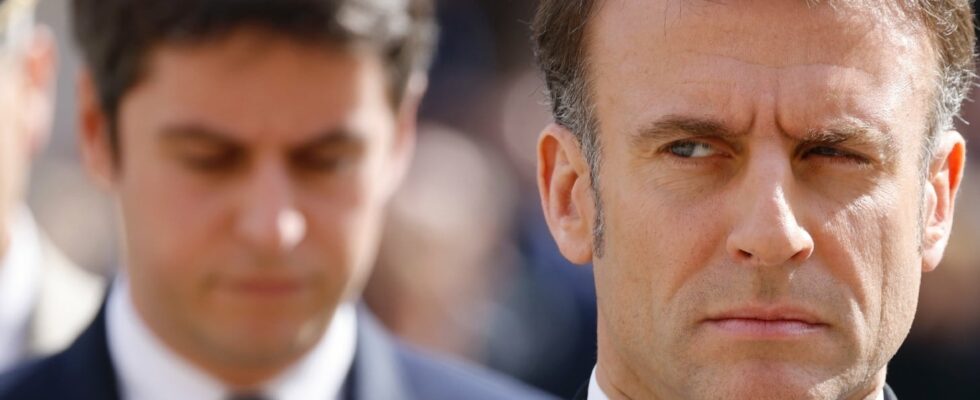If we’re going to delay agreeing on a name, we might as well choose the most opportune moment to pull it out. An hour and ten minutes before the presidential interview on France 2, for example? A way for the New Popular Front (NFP) to force Emmanuel Macron to take a position. Which is what it did. On Wednesday evening, the head of state dismissed the idea of endorsing Lucie Castets, the official candidate of the left-wing coalition: “The subject is not a name given by a political party. The question is what majority can emerge in the Assembly so that the government of France can pass reforms.”
A rejection in short, which has aroused the ire of the NFP leaders. “Macron is a dangerous and capricious character”, sneers the leader of the rebellious deputies Mathilde Panot on X. In her wake, the leader of the Greens, Marine Tondelier, amuses herself with a funny parallel: “Emmanuel Macron, he looks like my 5-year-old son when he loses at Monopoly Junior”. On TF1 this Wednesday morning, Olivier Faure, first secretary of the pink party and the first to have proposed the name of the 37-year-old ENA graduate, adds: “The president lives in a parallel world. Reality escapes him”.
The political reality, perhaps. But the legal reality, not necessarily. If we refer to the Constitution, Article 8 merely states: “the President of the Republic appoints the Prime Minister”. A “short and obscure” constitutional letter, points out a professor of Public Law, in a nod to the formula of Napoleon Bonaparte, First Consul. Thus, the absence of precise institutional rules forces us to admit that the tenant of the Elysée is not constrained by time or by the configuration of the political landscape.
The absence of a majority, the key argument
Thus, the lieutenants of the left-wing coalition may shout from all sides that Emmanuel Macron “is obliged to appoint the NFP candidate”, but this is not the case. First, appointing the leader of the majority in the National Assembly is simply a republican custom. Second, with 182 seats for the NFP, 168 for the presidential coalition, and 143 for RN, no clear majority emerged from the ballot boxes. “Nothing justifies feeling obliged to grant its most eminent attribute – the government of France – to those who occupy less than a third of the seats in the National Assembly”, constitutionalist Denys de Béchillon notably dismissed in l’Express.
Furthermore, on a legal level, whatever the name and political colour of Gabriel Attal’s successor, Jupiter is not constrained by any deadline. He can therefore quite easily wait until the end of the Olympic and Paralympic Games, “a period which requires institutional and governmental stability”, judges Thomas Clay, professor of public law. ““Obviously, until mid-August, we must be focused on the Games. And then from there, depending on the progress of these discussions, it will be my responsibility to appoint a Prime Minister,” Emmanuel Macron argued on Tuesday evening.
Especially since if François Mitterrand and Jacques Chirac appointed the leader of the opposition to Matignon in less than forty-eight hours in 1986, 1993 and 1997, an episode even older could serve as a precedent. “After the censorship of 1962, de Gaulle waited two months, and dissolved the National Assembly in the meantime, before finally reappointing Pompidou to Matignon”, underlines the law professor at the Panthéon-Assas University Paris II, Guillaume Drago. Thus, regardless of the unprecedented nature of the political situation, Emmanuel Macron remains master of the clocks and, one could add, keeper of the keys to Matignon.
